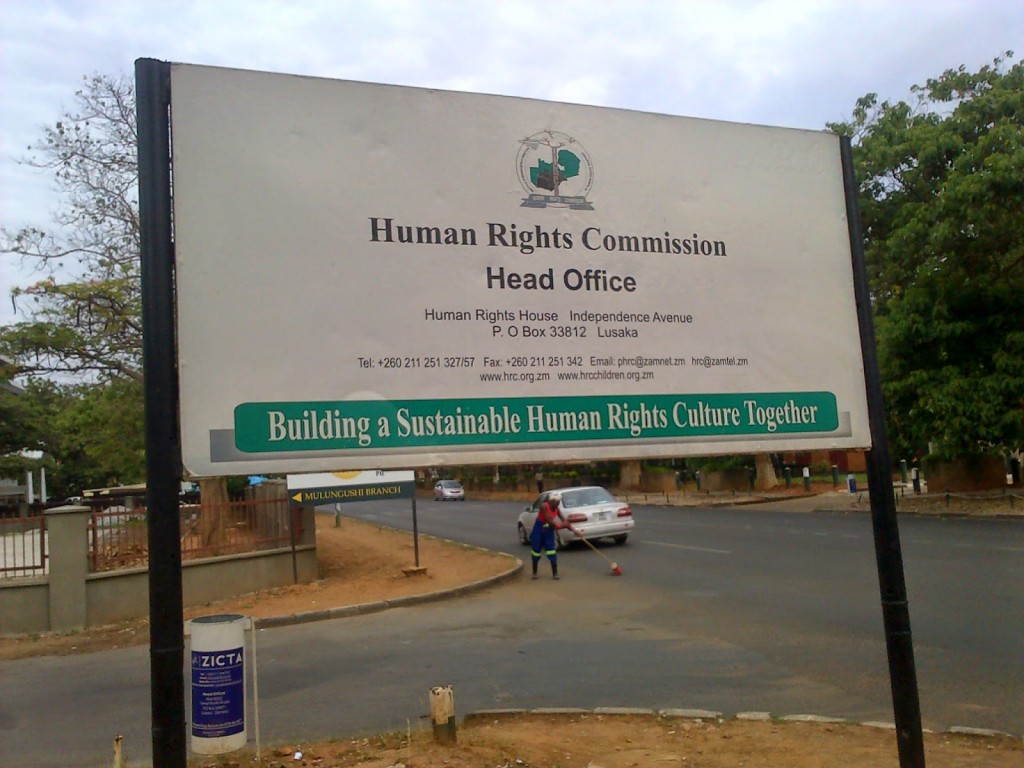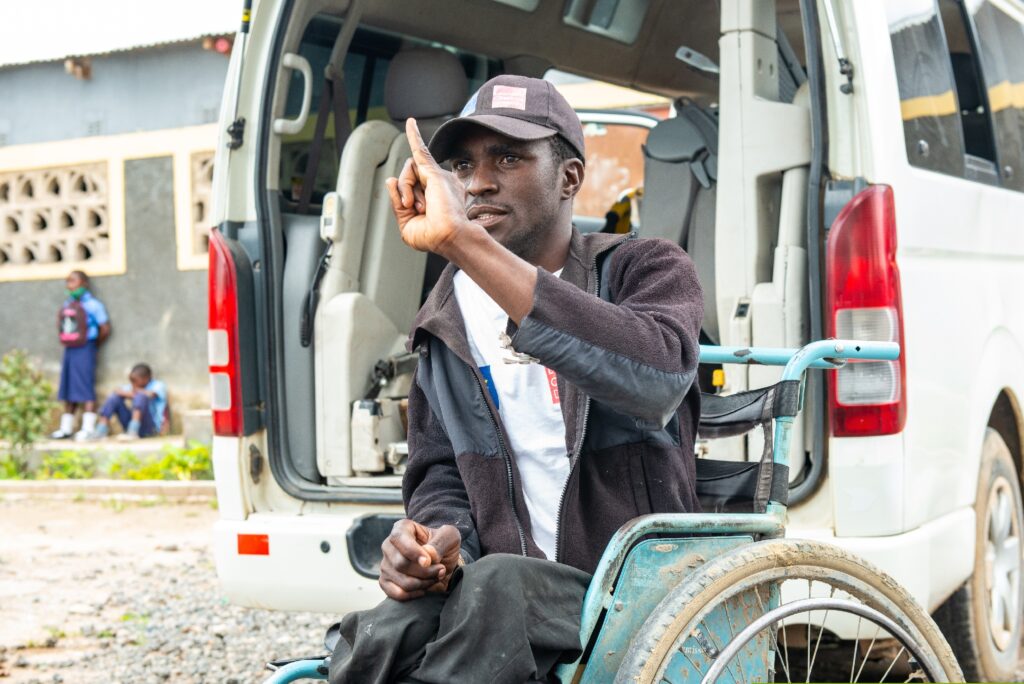
PETITION TO HRC BY CHILDREN WITH DISABILITIES
This petition is today, the 2nd of December, 2014, submitted to the Human Rights Commission with a copy for the attention of the President of the Republic of Zambia. The petition is particularly submitted to the Human Rights Commission because it concerns different issues across all the rights of children with disabilities. It outlines the actual problems faced by children with disabilities; the effect of those problems and attempts to provide recommendations. The petition is brief and simple for the purpose of understanding by all categorise of children with disabilities.
The Youth Disability Equality Pressure Group is a wing of the Zambia Association of Parents of Children with Disabilities (ZAPCD). It was formed in the year 2013 after receiving training from ZAPCD through the technical support of Disability Rights Watch (DRW). The sole purpose of the Pressure Group is to promote and protect the rights of children and youths with disabilities through self-advocacy and self-representation with the support of the parent organisation (ZAPCD). The Pressure Group presents this petition after realizing the children and youths with disabilities still suffer discrimination in almost all sectors of national development.
Children and youths with disabilities face a lot of challenges when it comes to enjoying their rights on an equal basis with other children and youths.
1. Education
Children and youths with disabilities face many challenges in education. Many children and youths with disabilities leave their families and homes as early as seven years to get to special boarding schools very far from their homes. This makes them remain detached from the families. The schools at which their brothers and sisters go to cannot accommodate them because of inaccessible buildings; inappropriate learning materials; negative attitudes; and teachers not trained to handle the needs of children and youths with disabilities. It seems the Ministry of Education and other people who make decisions are doing little about these challenges because we cannot feel what they are doing. Enrolment rates at primary school are lower than those of their peers without disabilities. If enrolled, children with disabilities remain excluded in the learning process or end up dropping out of school. Their progression rate to secondary school is also poor. At secondary school, children with visual impairments have got difficulties in taking up mathematics and other science subjects. Thus, have got limited opportunities to proceed to tertiary education where mathematics and science are prerequisite subjects.
Tertiary education is still a great difficulty especially at our Universities which are physically inaccessible and do not have adequate facilities to provide reasonable accommodation in the learning process. This is worse for youths who are deaf and deaf-blind. Children and youths with intellectual disabilities are completely excluded with no consideration at all.
2. Health
Children and youths with disabilities have got some health problems which are related to their disabilities. For example problems that need physiotherapy; good nutrition; speech therapy; good sanitation and clean water and eye care. They also need sexual and reproductive health education. Most of these facilities are either completely not there or inappropriate for children and youths with disabilities. In our schools, sanitation is pathetic and does not allow children and youths with disabilities access the toilets freely and independently and without losing the respect for their privacy and inherent dignity. Education materials on sexual and reproductive are not available in accessible formats and communication modes, especially for those with visual, hearing and intellectual disabilities. This includes materials on HIV/AIDS. In certain circumstances, parents of children with disabilities do not take their children with disabilities for under-five clinic in fear of stigma and discrimination.
3. Family life
Children and youths with disabilities are part of the family. They must enjoy everything other family members enjoy. Instead, many children with disabilities are hidden by their parents and never come out of the house. Many children with disabilities do not enjoy play with their friends. They are left out of family gatherings, fun and visits. When they reach youthful age where they can make their own choices about whom to marry, the youths usually have their families restricting them. This is worse with females. We have had of circumstances where children and youths who are female have been sterilised without their knowledge or consent to avoid them having pregnancies.
4. Participation, play, culture and recreation
Participation, play, culture and recreation are a stimulating factor for the development and growth of all children. Many children with disabilities are denied this. This begins from the homes and it is aggravated in the community and worse still in the schools. In the home, parents over-protect their children and thus deny them the right to play ad interact with other children. The children and youths with disabilities are even denied the right to participate in matters that affect them. Parents and other siblings always want to make decision on their behalf without consulting or involving them. Cultural and recreational facilities and activities are either absent or if present are inaccessible to children with youths with disabilities.
5. Protection
Children and youths with disabilities are at high risk of abuse, violence and exploitation. This abuse, violence and exploitation tend to be more for girls and women with disabilities. The abuse, violence and exploitation range from sexual abuse, child labour, concealing, neglect, rebuke and derogative language. This abuse, violence and exploitation go on right from the home, to the community and in school. It goes on with impunity and children and youths with disabilities do not receive any deliberate protection against such vices.
6. Vocational training and employment opportunities
There are very few vocational training opportunities for youths with disabilities in Zambia. Youths with disabilities do not have as wide a choice in vocational training as their peers without disabilities have. The youths do not have these opportunities because the available vocational training courses are not suitable for them due to inaccessibility; inappropriate training materials; and inadequately trained instructors to handle the needs of youths with disabilities. The training and instruction methodologies are also not appropriate for different categories of youths with disabilities. This is the same with the assessment and examination techniques. The limitation in vocational training limits the employment opportunities.
GENERAL EFFECTS OF THE ABOVE
Due to the above difficulties and issues, children and youths with disabilities continue to feel neglected and discriminated on the basis on their disabilities across all sectors of human development. They continue to remain out of school. If enrolled to school, they drop out early and do not attend secondary education. Those who complete secondary education remain without tertiary education. This increases the chances of children and youths with disabilities to grow and develop into adults who require social welfare assistance. Instead of contributing to the development of the country through paying tax, they drain the little social welfare funds that could have channeled to sectors like education and health.
Some children and youths with disabilities suffered abuse, violence and exploitation which have led to the loss of their lives. We have seen children and youths with mental disabilities being chained and tied to trees or abandoned in the forest. This is traumatizing to every child and youth with a disability.
HUMAN RIGHTS
We would like the HRC to actively promote the rights of children with disabilities as enshrined in the UNCRPD.
RECOMMENDATIONS
We children and youths with disabilities, today, pray for the following:
- A thorough investigation on the status of the rights and fundamental freedoms of children and youths with disabilities by the Human Rights Commission in Zambia. The investigation should be a matter of urgency and should provide explicit recommendations to prompt administrative, policy, legislative and programme measures to redress the above human rights issues. Such investigations should involve directly the children and youths with disabilities and their parents.
- The Human Rights Commission should with immediate effect provide interim recommendations based on the above human rights issues to different duty bearers on the need to expedite redress of the issues for the full benefit of children and youths with disabilities.
- The government should officially designate the Human Rights Commission as the Independent Monitoring Mechanism for the domestication and implementation of the United Nations Convention on the Rights of Persons with Disabilities (UNCRPD) – Article 33. In view of this, the HRC should begin monitoring the respect and protection of the rights of children and youths with disabilities.
- Government, through the Ministry of Community Development, Mother and Child Health should begin the consultative process of writing the first State Report to the UN Committee on Disability. This report should bring out the issues of children and youths with disabilities in Zambia.
- The Zambia Agency for Persons with Disabilities should with immediate effect begin to carry out awareness creation programmes on the rights and fundamental freedoms of children and youths with disabilities. Such programmes should involve directly children and youths with disabilities.
- Human Rights Commission in conjunction with ZAPCD should carry out awareness creation programmes in schools on the rights of children and youths with disabilities and the obligation of the schools and other children without disabilities.
Submitted to the Human Rights Commission with a copy to the President of the Republic on the 2nd of November, 2014 in Lusaka, Zambia.
